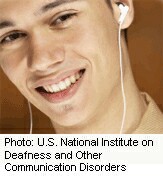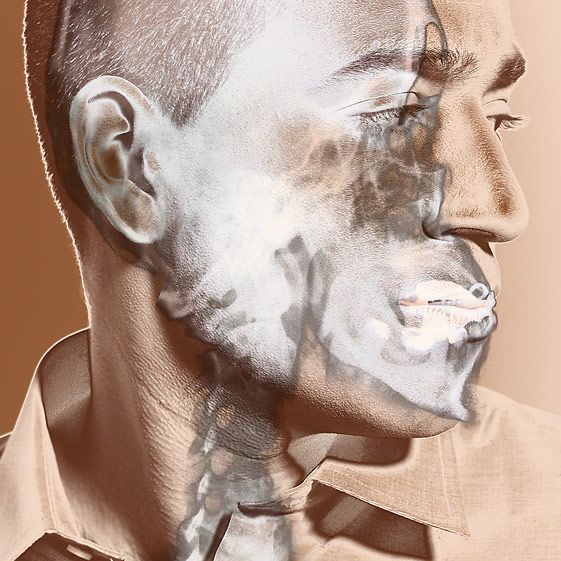
THURSDAY, Nov. 21 (HealthDay News) — One in six teens has some degree of preventable hearing loss, but few parents warn their kids to turn down their iPods or avoid other sources of excessive noise, new research finds.
“High-frequency hearing loss, which is typically noise related, has increased among U.S. adolescents,” said study researcher Dr. Deepa Sekhar, assistant professor of pediatrics at Penn State College of Medicine.
Yet Sekhar’s poll of about 700 parents found that the overwhelming majority — more than 96 percent — believed their teen was not at risk or only slightly at risk of developing hearing problems from too much noise. More than two-thirds said they hadn’t talked to their teen about noise hazards because of that perceived low threat.
Personal music devices and concerts are a common cause of noise overdose, as is lawn-mowing, especially when listening to music at the same time, she said. Shop class and sporting events also can be extremely noisy, she said.
High-frequency hearing loss doesn’t happen overnight. It creeps up gradually, limiting the ability to hear high-frequency common sounds in speech, such as the letters s, h and f. Over time, this can hurt school performance, personal life and, later, workplace success.
Whereas 13 percent of teens exhibited high-frequency hearing loss in the early 1990s, that figure had passed 16 percent by 2006, according to background information Sekhar provided.
The study, which involved parents with teens aged 13 to 17 years old, was published online Nov. 21 in the journal JAMA Otolaryngology — Head and Neck Surgery. It was funded by a grant from the Children’s Miracle Network, a nonprofit organization that draws attention to children’s health issues.
Sekhar said she doesn’t expect music-loving teens to give up this cherished pastime. Instead, she wants to raise awareness among parents that hearing protection is essential.
Keeping the volume of personal listening devices at reasonable levels is one way to safeguard hearing, she said.
“It’s difficult to give an exact volume level because it is both the volume and the length of the exposure that impact hearing in the long run,” Sekhar said. She suggested investing in volume-limiting headphones and volume controls on portable listening devices.
Parents also can suggest that their children wear ear plugs when they know noise will be excessive, such as at concerts, in shop class and when mowing the lawn, she said.
They should also discourage using two sources of loud noise simultaneously — for example, listening to music while mowing the lawn or snow-blowing, she said.
Hearing specialist Robert Frisina, director of the Global Center for Hearing and Speech Research at the University of South Florida, in Tampa, offered some advice for parents. “For personal listening devices, activate the volume limit that most devices have to prevent noise damage but are not usually activated by teenagers,” he said.
When teens are going to be engaging in activities that involve loud noise, advise them to wear hearing protection, he added. The pliable ear plugs available at drug stores are one option.
Sounds above 85 decibels can cause permanent hearing loss, according to the American Speech-Language-Hearing Association. Some MP3 players can reach 110 decibels, while lawn mowers can hit 106.
In her study, Sekhar found that better-educated parents and parents of younger teens were more likely than others to encourage safe-listening practices.
More information
To learn more about hearing loss, visit the American Speech-Language-Hearing Association.
Copyright © 2026 HealthDay. All rights reserved.

